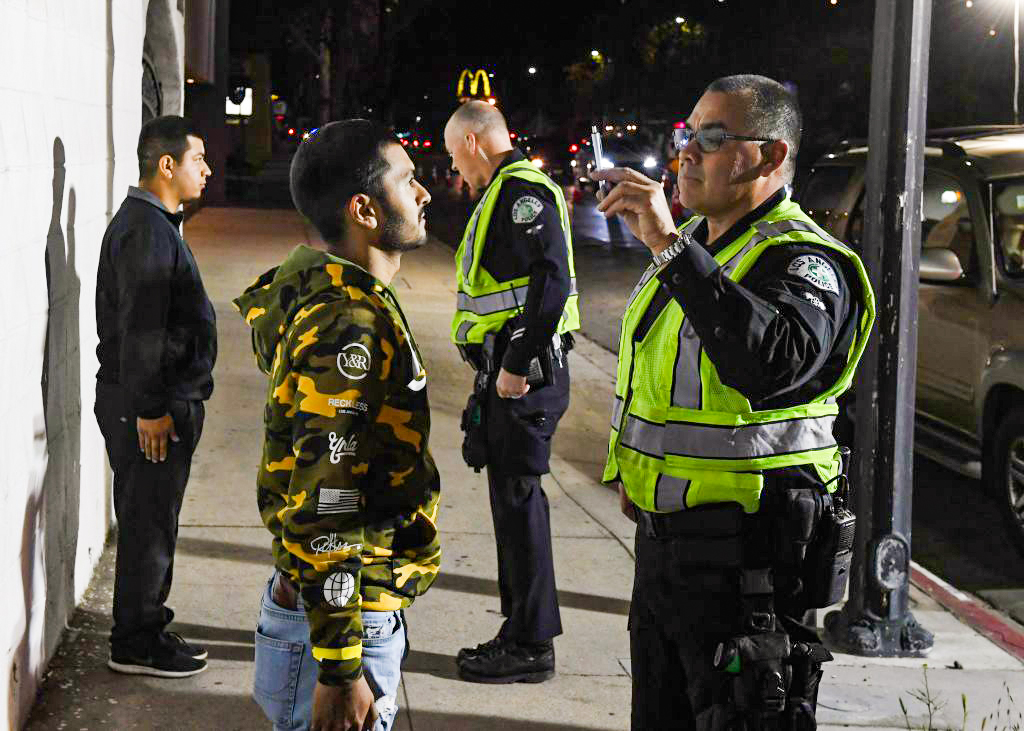The use of field sobriety tests to determine if a driver is under the influence of THC may be effective in certain situations, but they may not be enough to determine impairment on their own, a report from the University of California-San Diego researchers revealed on August 2.
Cannabis and its most potent psychoactive component, tetrahydrocannabinol—or THC—is known to impair reaction time, decision-making, coordination, and perception. In the last three years, California has seen a 62 percent increase in the number of fatal crashes involving drug-related impairment, university researchers said.
However, unlike the association of blood alcohol concentrations with impairment, THC blood concentrations do not correlate with driving performance, researchers found. Law enforcement officers instead rely on behavioral tests to determine a driver’s level of impairment—tests that were primarily created based on alcohol ingestion.
In the study published in Wednesday’s JAMA Psychiatry, researchers at the university’s Center for Medicinal Cannabis Research performed a double-blind, placebo-controlled randomized clinical trial to evaluate how accurate field sobriety tests are in identifying drivers under the influence of THC.
“Driving is a complex task that requires intact attention and motor skills to stay safe,” said first author Thomas Marcotte, professor of psychiatry at the university’s School of Medicine and co-director of the Center for Medicinal Cannabis Research. “While cannabis can be impairing, the effects vary for each individual. There is thus a public health need to confirm that evaluations of impairment are effective and unbiased, and this study is an important step towards that goal.”
The study included 184 adult cannabis users between the ages of 21 and 55. During the experiment, 63 participants received a placebo cannabis cigarette while 121 participants received a THC cannabis cigarette. Participants who consumed the THC reported a median “highness” level of 64 on a scale of 0 to 100, suggesting the content was sufficient to achieve significant intoxication.

Cannabis samples at Calalyst Cannabis in Santa Ana, Calif., on Feb. 18, 2021. (John Fredricks/The Epoch Times)
Trained law enforcement officers then performed field sobriety tests at four different time intervals, roughly one, two, three, and four hours after smoking.
The results found that officers classified a significantly higher proportion of participants in the THC group as being impaired based on the field sobriety tests compared to the placebo group at three of the four time points measured. For example, one hour after smoking, they labeled 98 participants (81 percent) from the THC group as being impaired based on their performance, and 31 participants (49 percent) from the placebo group.
But regardless of whether the test subjects received THC or placebo, officers suspected that 99 percent of those who failed the tests had received THC.
Study participants also completed a driving simulation, and their performance was “significantly associated with the results of select field sobriety tests,” though officers were not privy to this information, the researchers wrote.
The researchers concluded that existing field sobriety tests “may be sensitive enough” to detect those under the influence of cannabis. However, the overlap in poor test performance between the placebo and THC groups, and the high frequency at which officers suspected this was because of THC consumption, suggest that field sobriety tests alone may be insufficient to identify THC-specific driving impairment, they wrote.
“Field sobriety tests are useful additions to overall evaluations of drivers, but are not accurate enough on their own to determine THC impairment,” said Mr. Marcotte. “New effective measures for identifying cannabis impairment are needed to ensure the safety of all drivers on the road.”
The Center for Medicinal Cannabis Research has partnered with the California Department of Motor Vehicles and the California Highway Patrol on a follow-up study to test various methods of detecting cannabis-impaired driving. The study aims to recruit 300 participants and is set to begin in late summer.













